5 Questions to Ask Accessibility Officers BEFORE Applying to Graduate School
Accepting an award while I awaited surgery.
How do you navigate a disability in higher learning institutions, especially as a graduate student? Being a graduate student requires more from an individual than undergraduate studies, making academic accommodations an important aspect of post-graduate education. Unlike the undergraduate experience, professors and students develop closer relationships in graduate level studies, which has the potential to cause anxiety about registering for accommodations, struggling with partial accommodations, or even how those issues might impact your student-advisor relationship.
These were all worries that weighed on my mind when I went to apply to PhD programs. I was afraid to register for services, thinking that it would make me look “difficult” to a graduate department, afraid to negotiate with my advisor and department for accommodations regarding comprehensive exams, afraid to advocate for myself and my needs - All because I was ashamed at the thought of being labeled as the “problem student”.
But when my condition flared, my academic options became limited by an indeterminate return date (I was waitlisted to see a specialist about surgery), halting my funding. Although I was on leave and not receiving funding, I was still expected to adhere to funding and enrollment conditions, which meant working part time even though it wasn’t enough to sustain my cost of living. The only other option was to work full time to survive, meaning my only realistic option was to withdraw from my program.
Ultimately, NOT reaching out to ask questions and have discussions regarding accommodations resulted in having to shelf my graduate studies career. This is why I talk about my experience today - I want readers and other students to know two things: 1) my story is the worst case scenario, and 2) It IS possible to bounce back (example: me! I’m reapplying this year!)
Shortly after I withdrew and began working in the e-learning sector. Adjusting to a new normal was hard, but I knew getting back to doctoral work was the end goal.
By sharing this story, I hope that you will be able to make a different choice than the one I made, because your disability is nothing to be ashamed of! In fact, it is probably one of the key factors in your life that has prepared you for graduate school, and has turned you into an admirably resilient individual.
So, how do you ensure that you are going into a program and an environment that can be supportive of your disability needs? From my experiences, I have compiled five types of questions you absolutely need to ask an accessibility officer at any potential institution you are considering applying to BEFORE you spend time and money actually applying, so you know that that program will be the right fit for you.
The 5 Types of Questions You Need to Ask
Questions About Online Learning
Has the COVID-19 pandemic opened up the possibility for more flexible learning in the event that my medical condition flares (i.e.: hybrid learning)?
What conversations is the university having about better meeting accessibility needs in the long-term, not just in response to the COVID-19 pandemic?
You may not get a concrete answer, as this is a discussion that’s likely still in progress (the wheels of academic administration move very slowly) but you definitely want an answer from an accessibility advisor that indicates that they are in active conversation with the university to provide better accommodations for their students. That way, for whatever reason, if going to campus becomes impossible for you, you still have options and can continue your education.
Questions About Leave of Absence
How does the university handle extended leaves of absence?
What funding options are available for students who require a disability-related leave?
Graduate students are often constrained by the conditions of their stipend, which stops when they need to go on leave. Taking medical leave might also mean that your life and health has been impacted in other ways, impacting your ability to seek other employment in addition to your funding/enrollment conditions that may prohibit you from pursuing work, even when on leave. Given the importance of housing and cost of living expenses, knowing how a university supports its students on leave is important to your decision to apply.
Questions about Research and Fieldwork
How do students with disabilities at your institution navigate accommodations for fieldwork?
Is there funding to ensure that students can comfortably meet accessibility needs abroad?
Is there access to a granting officer that helps students with disabilities who may have higher budgets than other applicants due to disability needs?
A certain amount of this is going to come down to you - for example, as much as I would love to write about the Boboli gardens, the excessive slant of the landscape is tough on my joints and is not a realistic, accessible option for me. Because of this reality, I have accepted that I won’t always be able to access certain areas or locations for my research.
However, this does not mean you should be precluded from academic work entirely. The true problem here is that many research grants ask you to choose cheaper travel options such as booking a hostel or utilizing public transit in order for their funds to service as many students as possible. This is great in theory, but lacks consideration for students with disabilities as many housing and transit options do not accommodate for disability needs. Therefore, knowing how an institution handles these additional costs (if they do) is critical information.
Questions About Common Challenges of Accessibility at X University
What are common challenges that graduate students with accessibility issues face in navigating [University] during their degree program?
This is important information to know about going into a graduate program so you can plan ahead to circumvent these challenges and be able to anticipate dedicating time to advocacy as you hit certain milestones. Unless you hear a real dealbreaker, there probably won’t be anything in this that eliminates a school from your list, but it at least helps you when making decisions if and when you receive multiple offers.
Questions About Other Graduate Students
I’m considering applying to [department]’s [MA/MSc/PhD/etc] program. I understand that you can’t get into other student’s specific cases, but historically speaking, how has this department treated its graduate students who require accommodations?
Have there been any persistent issues or struggles regarding accommodations that may present a challenge for me with [x] disability?
Some departments do better with accessibility than others within the same institution. Departments are run by people and some will set a more accommodating tone than others, so it’s important to know where your prospective department falls on that spectrum. Going to graduate school is hard enough without additional challenges, so if you’re not prepared to advocate, knowing whether or not your department has a poor track record with accessibility services can save you months or years of headaches and stress.




